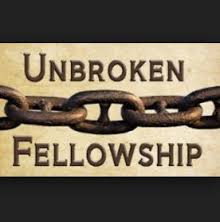Welcome to Throwback Wednesday
We close June with Throwback Wednesday. It is an occasion to look back and rediscover truths that we may have forgotten. In reading this WordBytes, I was challenged to place its insights in the context of today’s realities.
I’m sure many of you, like myself, are fatigued by the continual bombardments of bad news, emerging crisis in our nation, and the challenges to make sense of a world that seems to have lost its way. Regardless of the circumstances and events of the day, I invite you to “press in”. Press into God and feel His presence which will help us continue with hope and renewed energy.
I have always shared with friends and family, that God has purposed our lives for times such as this. Our resiliency and our ability to move forward need to be connected with the power, presence, and promise of God. He will not leave us nor forsake us. We need only “press in!
“You will find me when you seek Me.” Jeremiah 29:13
We have explored on many occasions the biblical truth that God is in and among us—continually, without interruption, 7 by 24. We experience God through our personal fellowship with Him and through the indwelling presence of the Holy Spirit.
However, there may be times when we don’t “feel” God. We feel estranged from Him, alone, and unable to hear His voice. Be assured, this is a common experience for believers. The resolution for this spiritual occurrence, however, is not to curb our prayer life or cease in reading His Word. During those times, it is imperative that we “press in.”
Disturbing Quietness
There are seasons in my life when it is extremely difficult to hear God’s voice. I’m not talking about unanswered prayer but times of “disturbing quietness” when l must strain to hear Him—if I hear Him at all.
As I shared this experience, I found other believers had been through similar seasons of silence. Interestingly, we all described it as a period when we “didn’t hear His voice.”
In Search of an Answer
When I first experienced this quietness, I began to the search my heart for sins I might have committed yet failed to confess. It was the sin of Adam that separated him from fellowship with God in the Garden of Eden. Later Adam and Eve would experience the physical death of their body—the final separation from the world God had created for them. I asked God to forgive me of my sins, yet I still felt disconnected from my First Love (Rev. 2:4).
My next effort was to examine my devotion time with Him. I would increase my time of reading His Word. Psalm 119 became my “song book” as I sought to hear His voice.
-
- I delight in your decrees; I will not neglect your word. (v. 16)
- I recounted my ways and you answered me; teach me your decrees. (v. 26)
- Yet you are near, O LORD, and all your commands are true. (v. 151)
- May my cry come before you, O LORD; give me understanding according to your word. (v. 169)
I would rise early to pray—leaving more time to “listen” and less to speak. I would “draw near” with a sincere heart with expectations that He would do likewise (James 4:8; Heb. 10:22). I would dedicate my day to praise and worship. If God inhabits the praises of His people (Ps. 22:3), He will surely respond to me as I emptied myself to Him. Yet with all the modifications to my devotional time, I couldn’t hear Him. After many days of silence, I finally experienced a breakthrough.
Learning to Press in
In Secrets of the Secret Place, Bob Sorge shared his insight into my situation.
Many of us feel like we move in and out of God’s throne room. We have times of great connectedness, and then we suffer periods of disconnectedness. We can’t always analyze exactly why a distance has developed in our hearts toward the Lord, but most of us feel like our relationship with Christ is a roller coaster ride of feeling close, then far, then close, then far, then close again. In and out. And we hate it. We were created for constant intimacy, and anything less drives us crazy on the inside. It is at those times that we need to press into God like you never have in your life! Allow the desperation of your soul to help you pursue God with absolute abandonment.
God’s periods of quietness were an invitation to draw closer to Him—to “press in.” More than proximity, He desires to establish an intimate friendship with us that is walked out through the course of our everyday lives. He is not looking for a segment of our day nor a day of the week. He desires unbroken communion with us.
So on those occasions when it appears that “you can’t hear God”, press in! Be of good courage for He is ever near (Ps. 73:28). Press in! Eagerly and unabashedly pursue Him, the Pearl of Great Price (Matt. 13:46). Press in!
SELAH: Read Psalm 63:1-8. Write in your journal the ways that David “pressed in” to God during his time in the wilderness. Read the text again using a different translation or paraphrase. Then ask the Holy Spirit how He wants you to “press in”.




